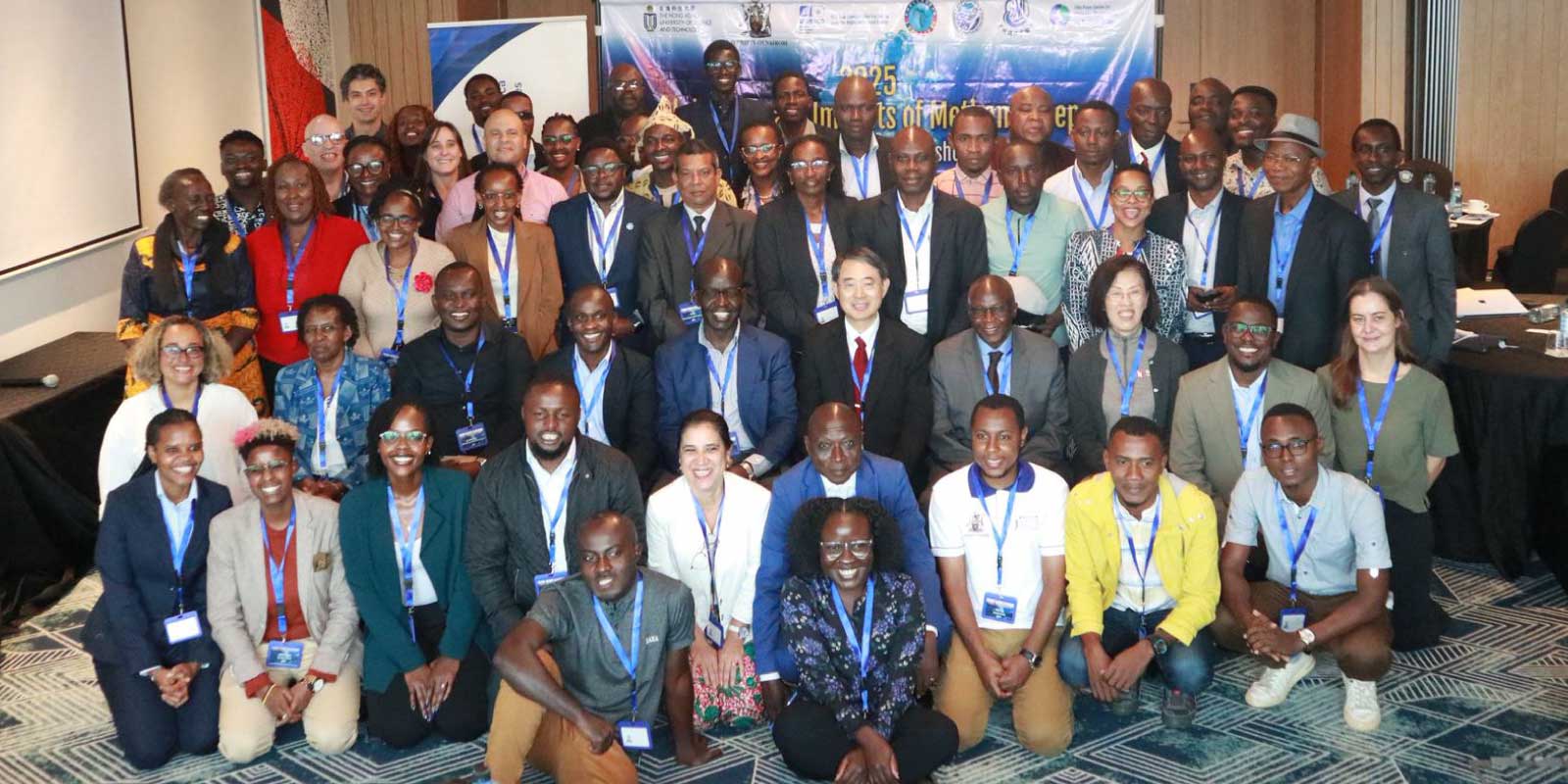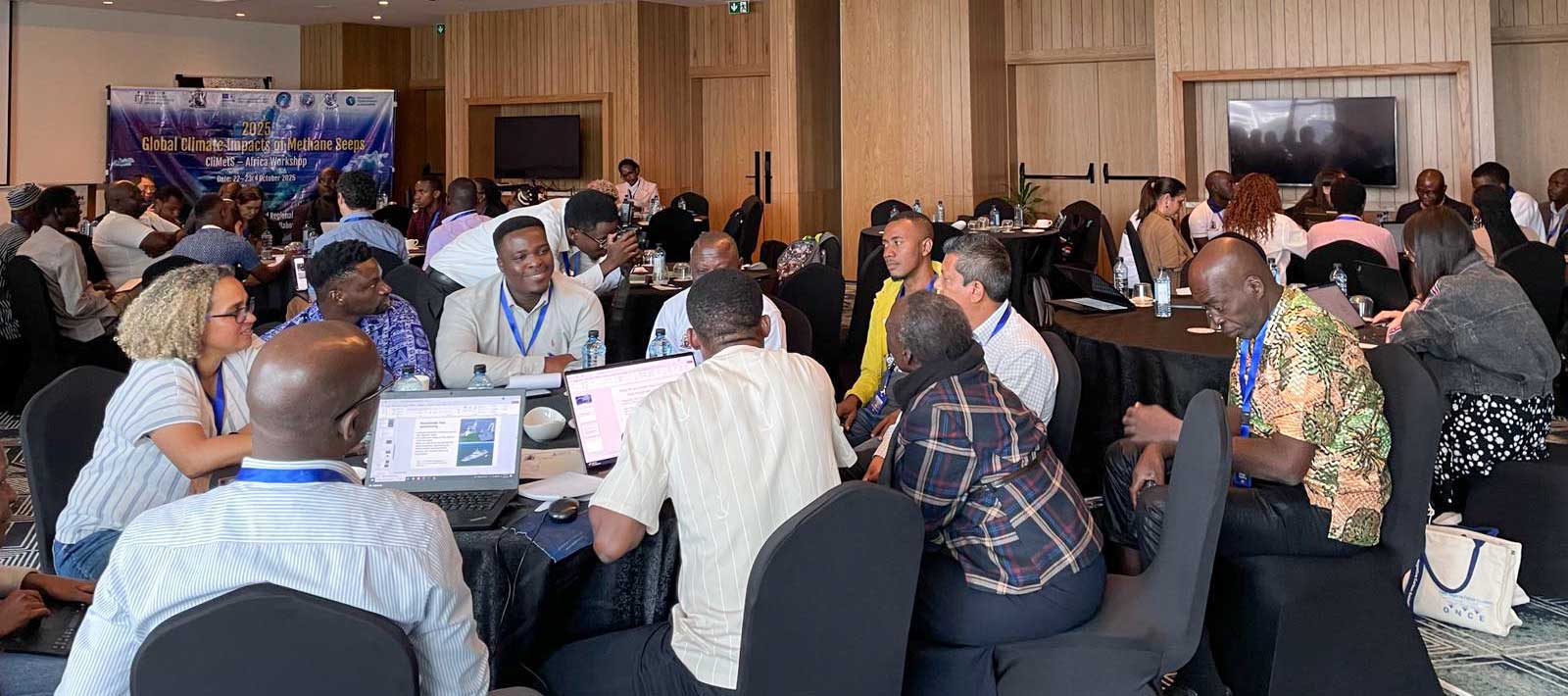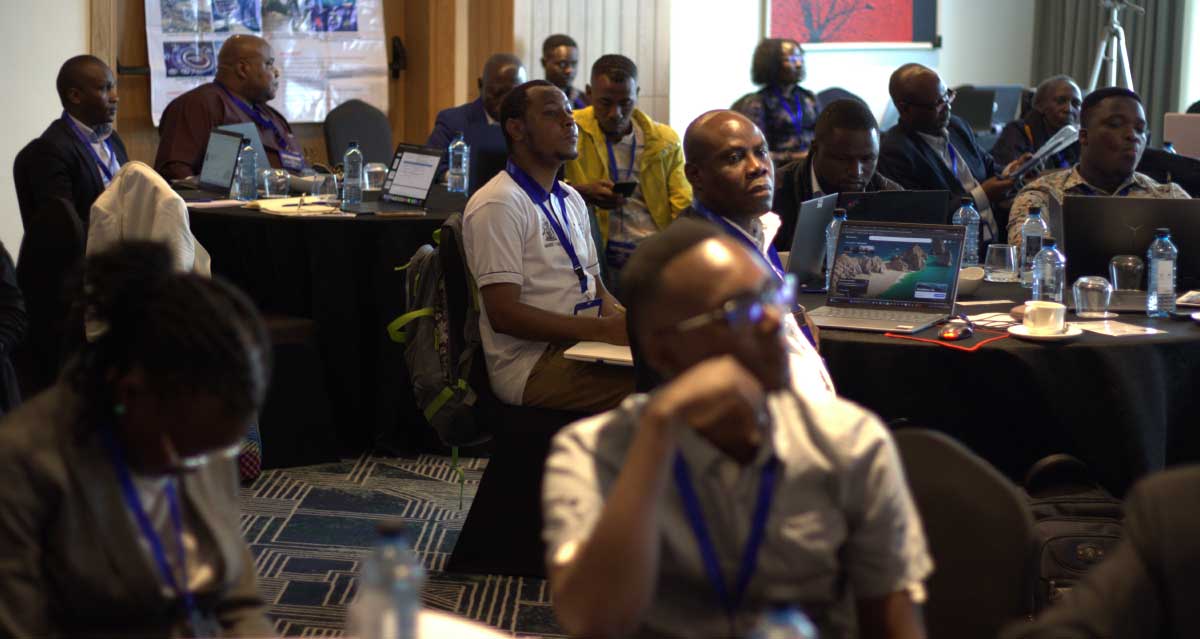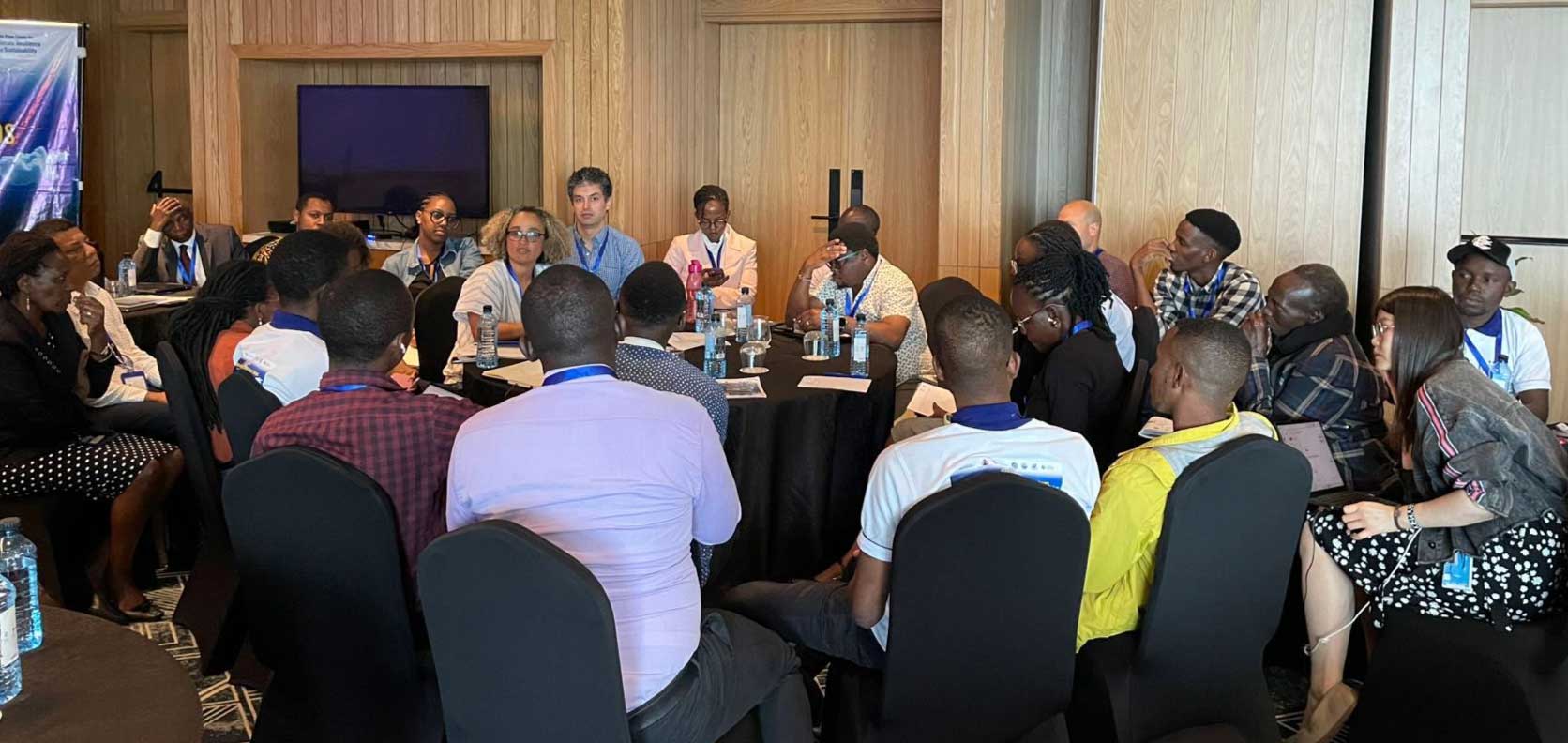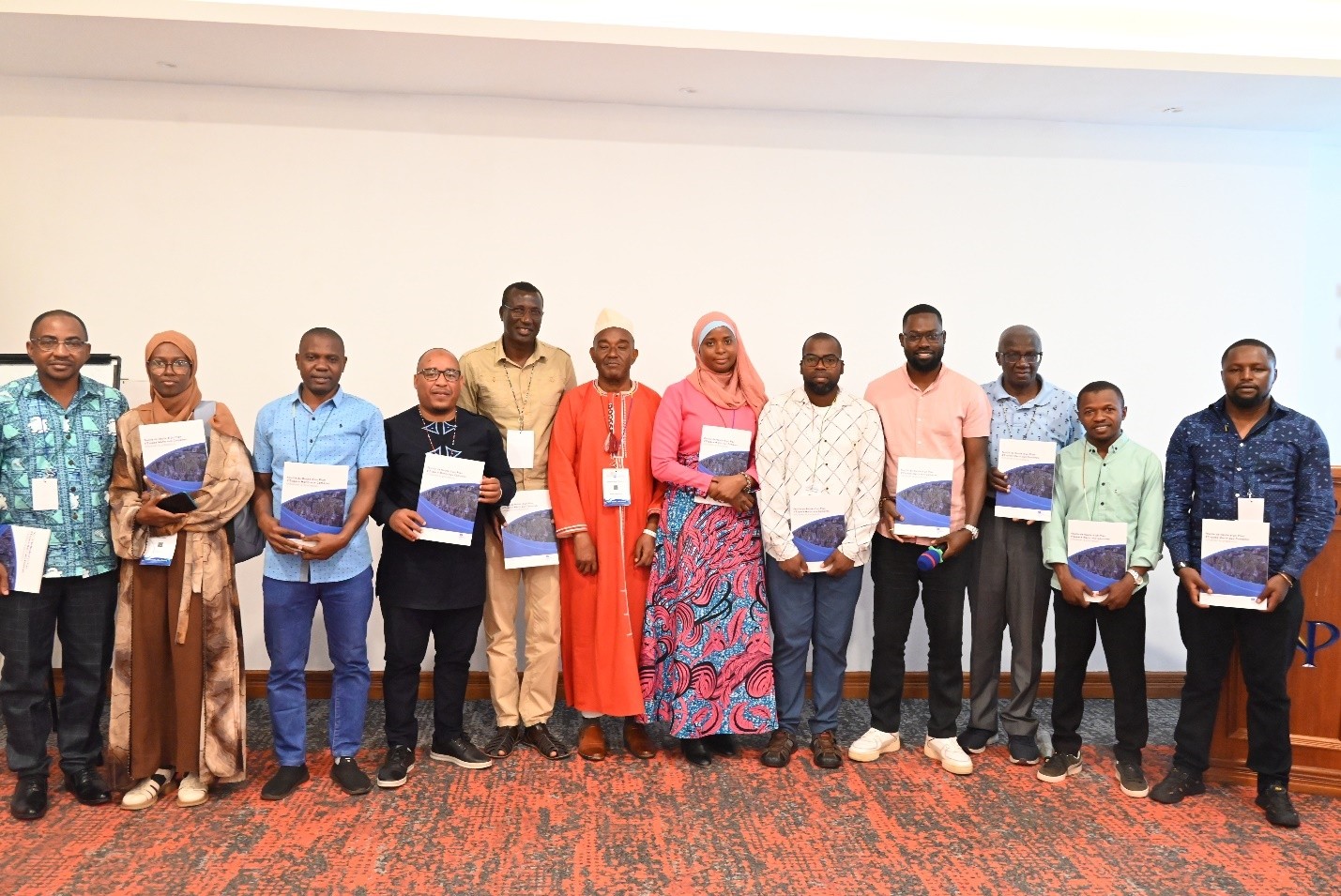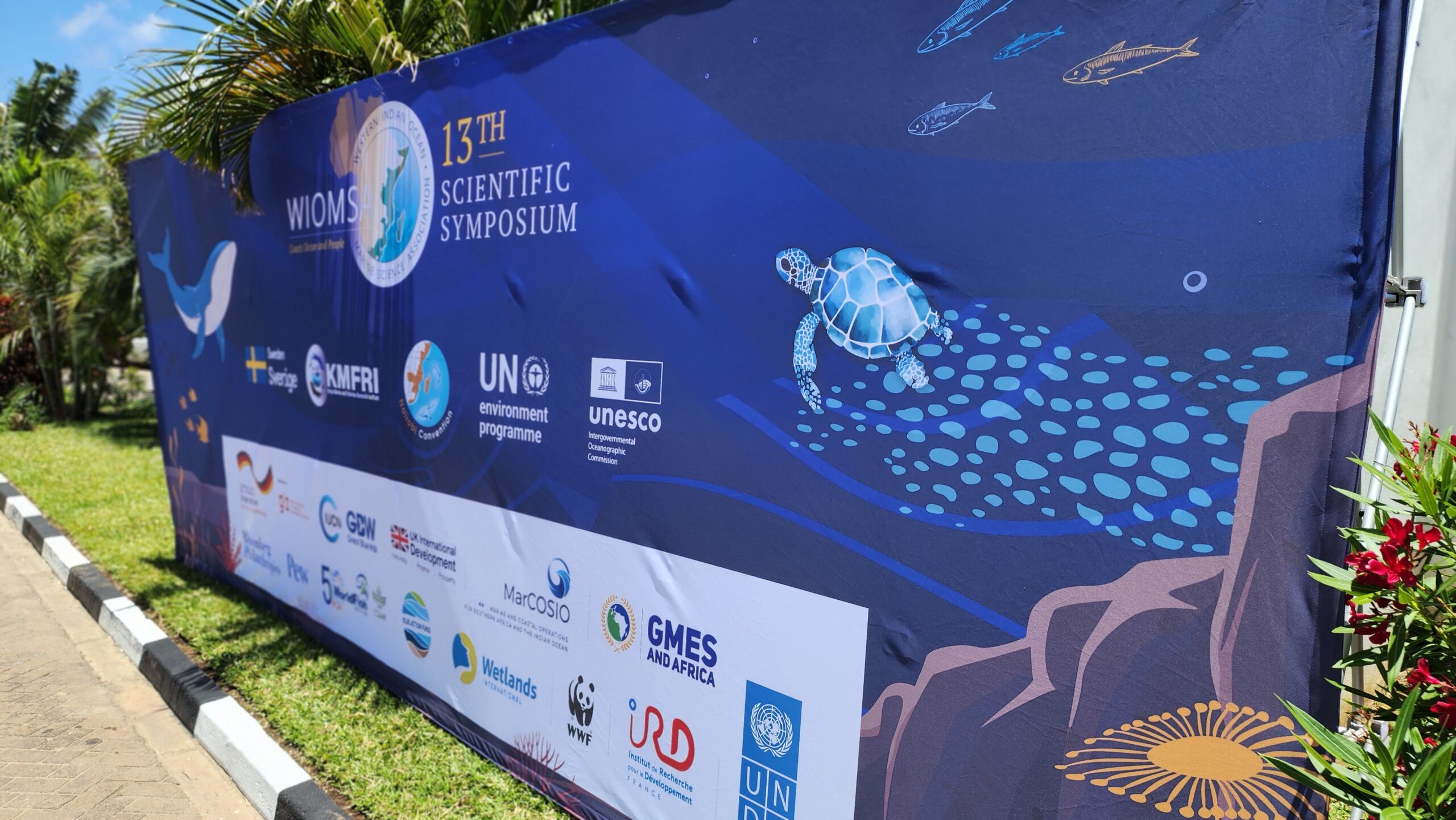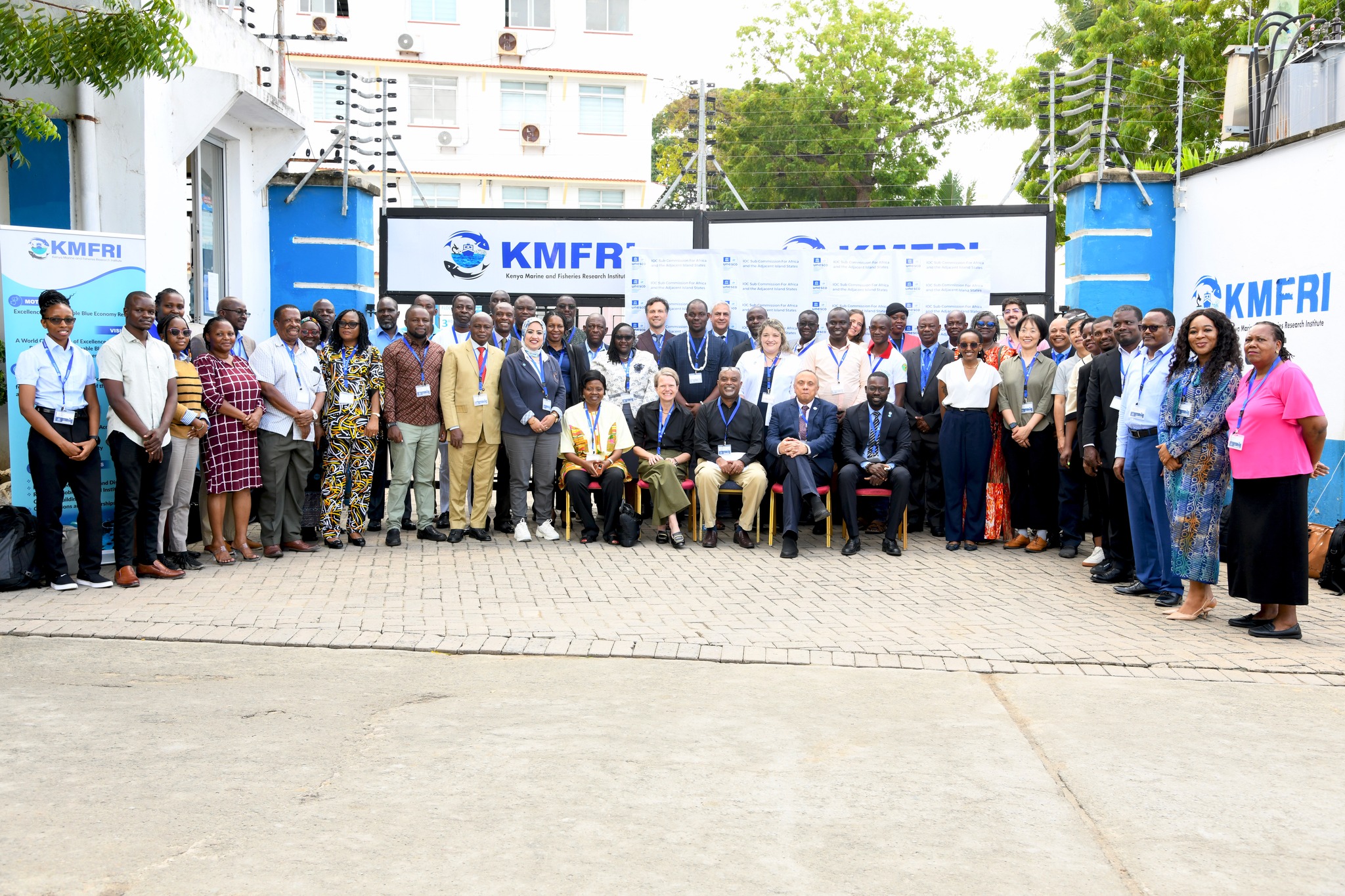Participants at the Eco ballroom during the opening session at the 13th WIOMSA Scientific Symposium
The 13th WIOMSA Scientific Symposium, held from September 28 to October 3, 2025, in Mombasa, Kenya, under the theme "One Ocean, One Future: Connecting People, Policy, and Science for a Thriving Western Indian Ocean," marked a pivotal moment for marine science and ocean sustainability in the region. Nearly 1,400 participants gathered to foster dialogue and collaboration among scientists, policymakers, private sector actors, civil society, Early Career Ocean Professionals (ECOPs), and coastal communities.
The symposium resulted in major agreements to strengthen regional cooperation, boost ocean science initiatives, and implement action points targeting marine pollution reduction and climate change mitigation. These commitments underscore the symposium’s critical role in advancing sustainability in the Western Indian Ocean.
The event’s thematic areas focused on the nine priorities of the Ocean Decade Africa Roadmap. As a key partner, the UNESCO-IOC Sub-Commission for Africa and the Adjacent Island States (IOCAFRICA) reinforced its crucial role in promoting ocean science, building regional partnerships, and supporting the UN Decade of Ocean Science for Sustainable Development (2021–2030).
A Call to Bold and Practical Science
Mr. Ibukun Adewumi, Head of the IOCAFRICA Secretariat, delivered a compelling opening speech stressing the urgency of taking action, developing capacities, and enhancing collaboration across sectors.
Mr. Ibukun Adewumi, Head of IOCAFRICA Secretariat
“We are the first generation to truly see the size of the ocean crisis, and maybe the last to fix it.” He stated.
He emphasized that IOCAFRICA will continue collaborating with like-minded partners to achieve not only a healthy and resilient ocean but also one that is productive, predictable, inspiring, and engaging. His message highlighted IOCAFRICA’s commitment to promoting ocean sciences and advancing blue economy strategies at the national, regional, and global levels.
During the official opening, Kenya’s Principal Secretary for the State Department of Blue Economy and Fisheries, Hon. Betsy Muthoni Njagi, CBS, stressed that “science without policy is powerless, and policy without science is empty,” urging leadership to address pollution, climate change, biodiversity loss, and resource scarcity.
Meeting between The WIOMSA 2025 Scientific Symposium organizing partners and Principal Secretary for Mining and Blue Economy, Betsy Njagi.
Additionally, Prof. Shaukat Abdulrazak, Kenya’s Principal Secretary for Science, Research, and Innovation, reinforced the need for the “socialization of science,” ensuring knowledge benefits all stakeholders. Scientists were encouraged to think creatively and blend modern science with traditional local knowledge. Mr. Paul Orina, Director General of KMFRI, advocated for “science unusual”—innovative, community-focused research delivering practical solutions.
IOCAFRICA Special Sessions
IOCAFRICA held two dynamic and insightful Special Sessions during the Symposium. In collaboration with the Flanders Marine Institute (VLIZ), the session titled “The UN Decade of Ocean Science: Milestones and Gaps in Bridging the Science–Policy–Society Interface in Africa” showcased the role of National Decade Committees (NDCs) as essential structures for implementing the Ocean Decade, while also highlighting ongoing initiatives in the region that contribute to translating science into policy and society.
Mr. Ibukun Adewumi addressing the participants at our special sessions
Juana Jimenez of the Belgian NDC emphasized that NDCs must be multistakeholder platforms including government, private sector, academia, and communities. Christina Kibuta highlighted the importance of national policies to combat marine plastic pollution, while Naya Sena stressed co-designing solutions with coastal communities to build trust.
In the second panel, Aina Le Don lauded the Strengthening Sea Level Monitoring and Data Management in East Africa for Coastal Resilience and Community Safety (SEAMARCS) project as an initiative which ensures that ocean observation services serve the communities by enhancing coastal resilience in Kenya, Madagascar, Mozambique and Seychelles.
Clara Vives discussed the Blue Capacity Development (BlueCAD) Project, which strengthens ECOPs' skills through training and workshops. Kevin Lunzalu outlined East Africa Wildlife Society’s (EAWLS) contributions to marine conservation, including the Blue Carbon Ecosystems Conservation Project and advocacy for Locally Managed Marine Areas (LMMAs).
In the end, participants were grouped into three groups representing policy, science and society where they outlined bold visions and pathways that will enhance the connections for the three groups by 2030.
Group 1: Policy Group 2: Science Group 3: Society
The second Special Session, “Shaping Africa’s Ocean Future: Early Career Ocean Professionals (ECOPs)’ Voices for Policy Action,” showcased how African ECOPs are leading efforts to achieve the Africa Roadmap’s nine priorities. Participants agreed that ECOPs should be fully integrated into decision-making rather than included only to meet requirements. Senior scientists were urged to mentor ECOPs as the region’s current and future ocean leaders.
Early Career Ocean Professionals pose for a group photo
Working Together for Change
The symposium concluded by highlighting strong partnerships between IOCAFRICA and regional collaborators, demonstrating how collective action can address marine challenges in the Western Indian Ocean and wider Africa. Leaders called for increased funding, enhanced cross-border cooperation, and faster translation of ideas into action. The closing message of #WIOMSA2025 was one of hope, innovation, and unity, paving the way for Africa’s Ocean to become a beacon of resilience and prosperity for generations to come.


